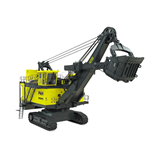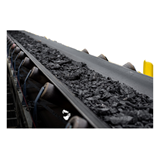The recent announcements by the Minister for Resources and Energy, Martin Ferguson, of expediting an increase in the mining sector's superannuation guarantee (SG) level from nine to twelve percent is also of interest.
As China and India continue to grow, their demand for Australian resources will remain strong for the next decade. However, other areas of the Australian economy may be left behind in what the government has often called a 'two-speed economy'. The latter refers to the specific situation where the resources sector (including the mining industry) will continue to flourish along with the mining states, whilst the rest of the country and other industries languish in the shadow of the recent global financial crisis.
So it's interesting that the federal government in Canberra has signaled a need for an increase in compulsory superannuation contributions by mining companies and the resources sector from nine to twelve percent. The Henry Tax Review recently revealed that a three percent increase in yearly superannuation contributions can increase retirement income for the average worker (on a $50,000 annual salary) by as much as $100,000.
But what Martin Ferguson argues, along with various other voices outside the mining industry, is that employees in the mining and resources sector should not come under the fiscal burden of the government, or the public, in their time of retirement. They argue that workers in the mining and resources sector are already compensated well above the national average and therefore should take greater accountability for their own retirement.
This is perhaps a sort of second visit by the government to the resources and mining sector, following the unpopular proposed super tax profit several months ago, prior to the election. As more money is being earned by the resources and mining sector, there is a greater call for those earnings to be spread across the nation, so to speak.
Given that Australia is an ageing nation, within a few years a shrinking population of younger workers will have to support a growing population of aged 'baby boomers'. This is expected to cause significant strain on the younger working population. They are likely to be taxed more, and will have to work longer hours, to earn the same amount of income.
However, Australia's situation is nowhere as difficult as China's, which is facing significant pressure going forward. Given its much touted 'One Child Policy', which was introduced exactly 30 years ago, China has lost potentially 280 million additional young workers to support the country’s fast-ageing population.
This has led to a curious situation called the 4-2-1 scenario. This states that each young Chinese worker will have to support four grandparents, two parents and themselves, given the absence of an effective social welfare network in the nation.
Perhaps the Australian government's call for people (especially those working in the mining sector) to invest greater sums of their salaries into their retirement savings is a good thing. It is a move that has received the full support of the Association of Superannuation Funds of Australia (ASFA), and by many working Australians.
Recently, leading wealth management organisations have published reports stating that a sizeable portion of Australia's retirees could end up retiring on the equivalent of just $27,000 per annum. This relatively low figure means they may not be able to fund most of their essentials, including medicine, housing, travel, and so on.
Even though it is a relatively short-term sacrifice, an increased amount of money being set aside for retirement by mining sector employees will reap many benefits directly to them, and indirectly to the economy. The current total superannuation pool for Australia stands at $1.3 trillion. So an additional three percent per worker will add significantly to that overall sum, perhaps by over $100 billion. This means more funds will become available for domestic investment, leading to greater growth. So it's a win-win situation, which will only strengthen the Australian economy into the future.
Some in the mining sector could argue that, with the increased demand for foreign expertise, especially from next year onwards, the retirement money paid to these foreign workers may not benefit Australia. But the fact is, even with foreign workers' superannuation, these funds will be deposited with fund managers who could put that money to good use, to earn more money – either through direct or indirect investments, or through interest accrued on the funds in a passive manner.
As Australia continues to rely more greatly on the mining sector to drive the national economy, there will likely be more attention and interest from outside parties, including the government, on the vast sums of funds the industry will generate. We have already seen a foray by the government to try and hit the industry with a 40 percent super tax that eventually led to the general elections, and the present minority government. Now, we are seeing calls for greater retirement funds to be paid to mining industry workers, which are far more palatable and beneficial, not just for all of Australia, but also for those within the mining sector.
Higher superannuation contributions within the mining sector will guarantee workers in the industry continued prosperity and financial security, long after the Indian and Chinese demand for Australia wanes.











